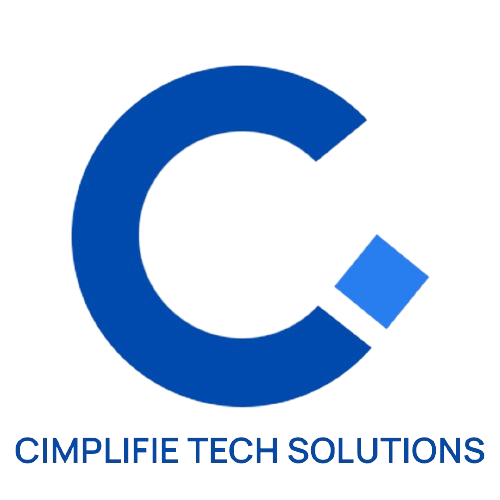In the ever-evolving digital marketing landscape, PPC (Pay-Per-Click) and SEO (Search Engine Optimization) are frequently viewed as rivals. Yet, when combined strategically, these powerful tools can work harmoniously to maximize brand visibility, enhance customer journeys, and drive exceptional returns on investment. This guide explores five practical ways to align PPC and SEO efforts, fostering collaboration and business growth.
What Makes PPC and SEO Collaboration Vital?
PPC and SEO may seem like opposites at first glance. SEO drives organic traffic through quality content and optimization, while PPC focuses on paid advertisements. However, when combined, they create a holistic approach to customer acquisition, leveraging each other’s strengths.
- PPC can provide immediate visibility while SEO builds long-term credibility.
- SEO insights can guide PPC targeting for better ad performance.
- Shared data enhances campaign decisions across both channels.
What Makes PPC and SEO Collaboration Vital?
- PPC and SEO may seem like opposites at first glance. SEO drives organic traffic through quality content and optimization, while PPC focuses on paid advertisements. However, when combined, they create a holistic approach to customer acquisition, leveraging each other’s strengths.
- PPC can provide immediate visibility while SEO builds long-term credibility.
- SEO insights can guide PPC targeting for better ad performance.
- Shared data enhances campaign decisions across both channels.
- By addressing their areas of overlap and aligning goals, you can achieve optimal marketing outcomes..

Collaborate on Data for Smarter Campaigns
One of the most crucial areas where PPC and SEO must collaborate is data sharing. Both teams collect valuable audience insights that can drive better strategies.
Utilizing First-Party Data Effectively
First-party data—collected directly from customers—provides a goldmine of actionable insights. Integrate PPC and SEO efforts by ensuring:
Compliance with Data Privacy: Confirm that your data collection aligns with GDPR or CCPA regulations.
Data-Driven Content Creation: Use analytics from PPC to inform SEO strategies, creating content that resonates with high-intent audiences.
For instance, the PPC team can share insights about high-performing keywords, helping SEO create impactful blog posts, landing pages, or product descriptions.
Adopt Enhanced Conversion Tracking
Google’s enhanced conversions offer deeper insights into PPC performance. While these figures may not align perfectly with SEO analytics, align on shared goals like improved ROAS (Return on Ad Spend) rather than exact metrics.
Streamline Landing Page Strategies
Both PPC and SEO rely on optimized landing pages, but their approaches often differ:
SEO prioritizes comprehensive content and internal linking to improve rankings.
PPC favors focused, conversion-oriented pages with minimal distractions.
Optimizing for Both Channels
For SEO: Develop rich, keyword-optimized pages with authoritative content.
For PPC: Include clear CTAs and fast-loading designs while avoiding elements that disrupt conversions.
An ideal solution involves subdomains or dedicated PPC pages that do not conflict with SEO priorities. Subdomains allow PPC campaigns to operate independently while still supporting the main domain’s authority.
Align Goals Through CRO Principles
Conversion Rate Optimization (CRO) should be central to every marketing effort, benefiting both organic and paid channels.
Transactional Intent Across All Pages
Bridge the gap by designing pages that cater to both research-oriented SEO traffic and action-driven PPC visitors:
Place rich, informative content below the fold for PPC users.
Ensure clear paths to conversion, such as prominent CTAs and contact forms, for SEO-driven visitors.
Collaborating on CRO ensures no visitor leaves without engaging, regardless of the traffic source.
Leverage Search Query Reports
Both PPC and SEO thrive on accurate keyword targeting. Search query reports from PPC provide insights into real-time customer intent, while SEO tools like Google Search Console uncover organic keyword performance.
Shared Keyword Strategy
Regularly share:
PPC Search Terms: Help SEO teams uncover emerging keyword trends.
SEO Analytics: Guide PPC teams in refining ad copy and keyword bids.
Internal Search Queries
Analyze in-site search behavior to understand your audience’s needs, offering critical input for both SEO content creation and PPC ad targeting.
Foster Communication Between Teams
The most effective way to synergize PPC and SEO is through regular collaboration. Silos harm marketing efficiency, but transparency fosters innovation.
Schedule Regular Syncs
Weekly check-ins can address immediate concerns like inventory changes or redirect schedules.
Monthly strategy meetings help align long-term goals and adapt to new trends.
Build a Culture of Trust
If you’re an agency, encourage joint meetings with clients to ensure alignment. Demonstrating collaborative efforts not only improves outcomes but also strengthens client relationships.
FAQs
How does PPC benefit from SEO insights?
SEO provides long-term data on audience preferences and trending keywords, which can help PPC campaigns refine targeting and messaging.
Can the same landing page work for both PPC and SEO?
While it’s possible, it’s not ideal. PPC thrives on streamlined pages, while SEO benefits from detailed content. A hybrid or subdomain approach is better.
How often should PPC and SEO teams collaborate?
Teams should have weekly check-ins for tactical updates and monthly sessions for strategic alignment.
What role does first-party data play in collaboration?
First-party data provides actionable insights about your audience, helping both PPC and SEO teams tailor strategies effectively.
Why do PPC and SEO metrics often differ?
PPC uses enhanced conversions and direct tracking, while SEO relies on broader analytics. Focus on shared goals like overall ROI instead of exact alignment.
Conclusion
PPC and SEO are not adversaries; they are complementary forces in the digital marketing ecosystem. By collaborating on data sharing, landing page optimization, CRO principles, keyword strategies, and communication, these channels can amplify each other’s success. Embrace the synergy, and watch your marketing performance soar.








1 Comment
Neque porro quisquam est, qui is dolor emr ipsum quia dolor sit amet the consec tetur is adipisci velit,